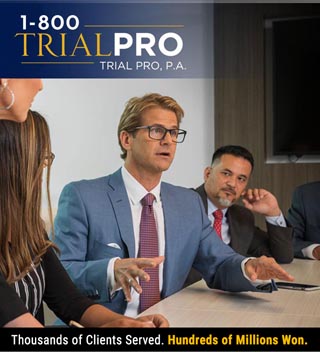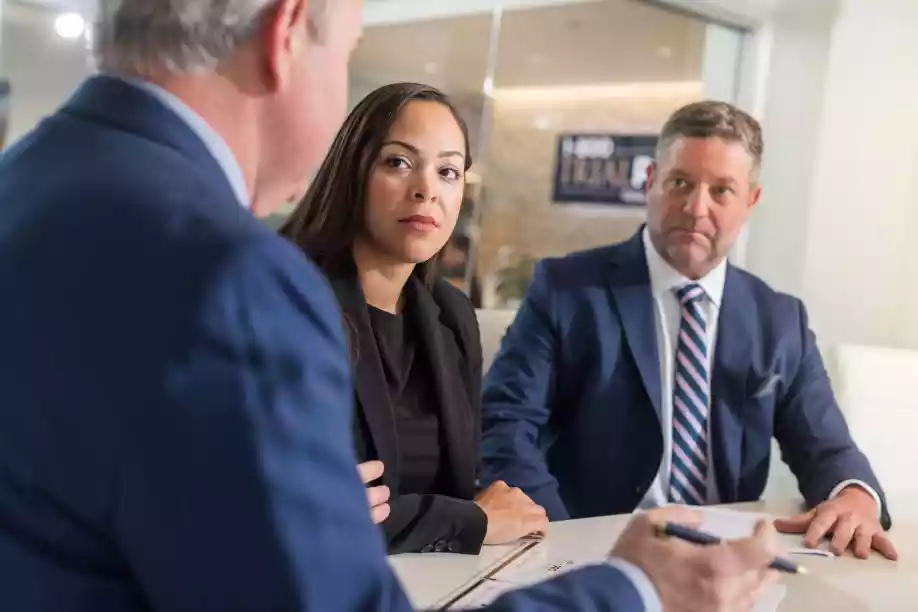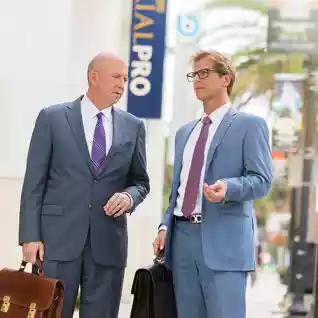A premises liability claim can sometimes be much trickier to prove than an auto accident claim. Luckily we live in an age where there are surveillance cameras almost everywhere. This can be the best evidence to have on your side during a premises liability claim but not everyone remembers to ask for this information after they are involved in a premises liability accident. If you do ask for a copy of the video footage and you are denied, the first thing you should do is hire an experienced personal injury attorney who knows how to handle these types of claims and knows what to do and say when it comes to the insurance companies. The first thing your attorney will do is send a certified letter to the premises where you were injured, informing them that they must retain all video footage of the accident, which is know as a preservation of evidence. Video footage is the number one piece of evidence that jurors will observe if your claim is taken to trial. If the video footage is not preserved and the owner of the location where you were injured has been officially placed on notice of the preservation of evidence this can be detrimental to their defense case and your attorney can use that as leverage when it comes to winning your case. If you can prove through video surveillance that the premises is clearly at fault for your accident, you have a much higher chance of settling your claim opposed to having to file a lawsuit to fight the insurance company.
Witnesses to your injury are an excellent way to prove your claim. If you are injured and someone sees the accident happen or helps you after the fact, you should always remember to get that person’s name and contact information for later use. If you hire a personal injury attorney to assist you with your claim, the attorney will contact the witness and explain that they are an important part of your claim and will ask them to provide a written or recorded statement. If that witness confirms your account of the accident, they will become a crucial part of your claim in proving liability. It is important to get a statement from the witness up front in case you or your attorney is unable to contact them again for future use. This statement, whether written or recorded, can be submitted to the insurance company as proof of how the accident occurred. The insurance company will only take a witness statement credibly if the witness has no affiliation with you. If the witness is a friend or family member, the insurance company usually refuses to entertain their account of the accident. A store or premises employee of where you fell can also be a good witness for you if they choose to share an accurate account of the accident. If the employee refuses to give a statement or sides with the premises in that they are not at fault, this would not be a good witness to have on your side.
Some people believe that just because you are injured in a store or premises, that it is automatically the fault of the employees where you fell. If you trip over your own feet or lose your balance, this is considered your own fault as the employees did nothing wrong. If you trip over a folded mat, slip on water on the ground or slip on a grape for example, this can be construed as the fault of the premises but not always. The employees of the premises where you fell must have had notice of the dangerous object or area or a sufficient amount of time must have passed since the danger occurred in order to have failed to remedy the situation. If someone drops a grape in front of you and you immediately slip on it, the employees did not have sufficient notice of the danger and did not have time to clean it up. If someone slips on a puddle of water and the surveillance video shows the water had been there for a significant amount of time or an employee had been in the immediate area where the danger was, then the premises can be held accountable as they had plenty of time to clean up the water and prevent a dangerous situation from occurring.
Insurance companies never accept liability in a premises liability claim. They will monitor your claim through updates from your attorneys office and then once you are finished with all of your medical treatment, your attorney will present your claim to the insurance company through a demand package. A demand package summarizes how the accident happened, your injuries, medical treatment, and any future medical treatment you may require. If the insurance company denies your claim or makes a settlement offer which you or your attorney believes is much less than what your claim is worth, your attorney may suggest you file a lawsuit against the insurance company. Your attorney will never suggest filing a lawsuit if they do not believe your case is strong enough to win.
If you file a lawsuit, you will be required to provide all your evidence to the defense attorney who will be retained by the insurance company to defend their interest in your claim. The defense attorney will depose you and any witnesses to the accident and ask you and your witnesses questions as to your account of the accident. If you or your witness or witnesses give an excellent accounting of how your accident happened and are adamant the employees failed in their duties, the defense attorney may decide that it is better to go ahead and settle your claim at that point rather than take the claim all the way to trial. If you settle your claim at this point, the insurance company will still not accept liability, they will simply state that they are settling your claim in good faith and usually will require you to sign a non-disclosure agreement upon settlement. If you must proceed to trial, a jury will decide if they find you and your claim credible and will decide collectively how much to award you for your settlement.











